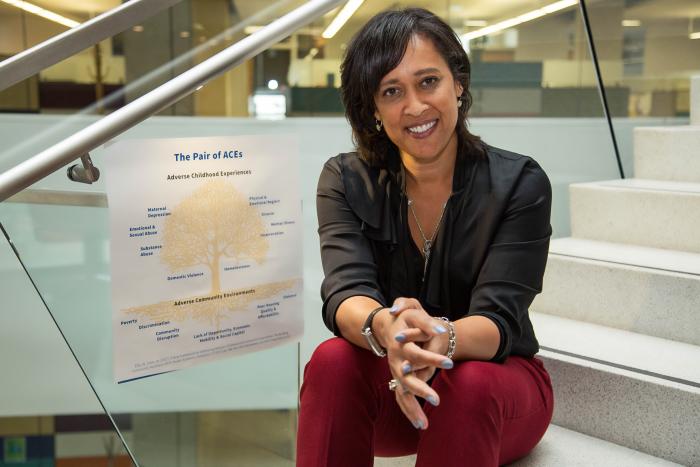Wendy Ellis

Wendy Ellis
Dr.P.H.
Assistant Professor; Director, Center for Community Resilience; and Director, Institute for Socioeconomic Opportunity
Full-time Faculty
School: Milken Institute School of Public Health
Department: Global Health
Contact:
Dr. Wendy Ellis is an Assistant Professor in Global Health and the Founding Director of the Center for Community Resilience at the Milken Institute School of Public Health at George Washington University. In 2024, she was appointed the Inaugural Director of the Institute for Racial, Ethnic and Socioeconomic Equity here at GW. The Equity Institute leverages the resources of a premier research university and invests in transformative community partnerships with the goal of eradicating racial, ethnic, and socioeconomic inequity worldwide.
The Center for Community Resilience housed in the School of Public Health seeks to improve the health of communities by enabling cross-sectoral partners to align policy, program and practice to address adverse childhood experiences in the context of adverse community environments — or as Dr. Ellis has coined it "The Pair of ACEs". This innovative framing of ACEs, with an explicit focus on equity and prevention, has had a substantial influence on local initiatives, programs, public health initiatives and local, state and federal policy. Using the Pair of ACEs framing, Building Community Resilience networks have successfully led systems and policy change focused on addressing long-standing economic, social and health disparties by partnering with community, integrating service delivery and building political will for change.
The Building Community Resilience (BCR) collaborative and networks are implementing the BCR process based on Dr. Ellis’ research in designing a strategic approach for multiple systems to align resources, programs and initiatives with community based partners to address adverse childhood experiences and adverse community environments. The BCR approach provides a standardized process to reach a customized solution to promote resilience in communities by improving access to supports and buffers that help individuals 'bounce back' and communities thrive. The BCR process has been adopted by governmental agencies and coalitions in countries across the globe including Canada, Finland, Scotland, Ethiopia, Somalia and Kenya. Here in the United States the BCR collaborative consists of cross-sector coalitions in six regional metropolitan areas based out of Cincinnati, OH; Dallas, TX; Portland, OR; Washington, DC; St. Louis and Kansas City, MO. and Seattle, WA. Dr. Ellis co-authored an article detailing the BCR process, "A New Framework for Addressing Adverse Childhood and Community Experiences: The Building Community Resilience Model" which can be found in the September 2017 Journal of Academic Pediatrics.
In 2019, Dr Ellis' dissertation titled "Community Resilience: A Dynamic Model for Public Health" which applies dynamic systems modeling to governmental public health department efforts aimed at addressing ACEs and building community resilience was implemented as the Resilience Catalyst initiative. The Community Resilience model is designed as a Public Health 3.0 strategy for the Chief Health Strategist working across sectors to drive initiatives that address inequities that are at the heart of the nation's health disparities. There are currently nine local health departments (Jersey City, NJ; Shelby County, TN; Baltimore City, MD; Leon County, FL; Lee County, IA; Mesa County, CO; AppHealth, NC; Cleveland, OH and Louisville, KY) using Dr. Ellis' Community Resilience framework to address racial disparities in evictions, income inequity, social cohesion, community violence, and access to economic mobility as a public health prevention initiative. Dr. Ellis' team partners with the National Association of County and Health Officials, the American Public Health Association and the Centers for Disease Control to support the Resilience Catalyst cohorts.
Behavioral Health
Children's Health
Chronic Disease
Community Health
Federal and State Legislation, Laws and Policies
Global Health
Health Disparities
Health Policy
Health Services Research
Hospitals and Health Systems
Maternal and Child Health
Mental Health
Population Health
Prevention
Public Health Preparedness
PUBH 6499 - Structural Racism and Implications for Public Health
Center for Community Resilience go.gwu.edu/CCR
Sumner M. Redstone Global Center for Prevention and Wellness go.gwu.edu/Redstone

